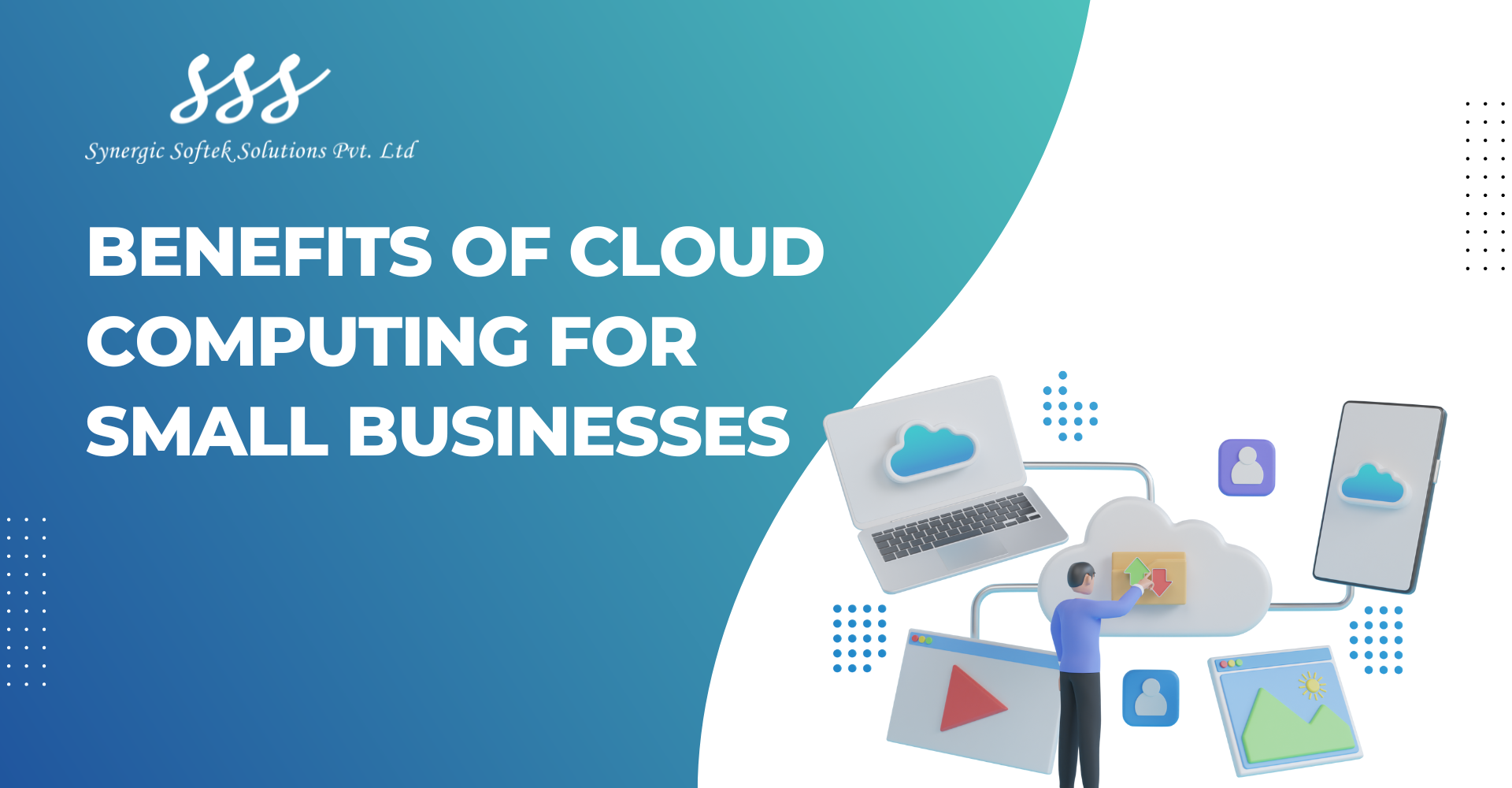
Top 5 Benefits of Cloud Computing for Small Businesses
Whether we talk about data storage or managing data, there is always one term we hear- cloud computing. In recent years, we have all been using cloud computing without realizing it. For business Google Docs, Google Drive, or even for sending emails, cloud computing always plays a vital role behind the scenes. All businesses want to grow, and for that reason, the market is always competitive, none wants to lag behind. That’s why they are choosing cloud computing over one-premise software or local hosting.
Cloud computing makes work easier since you can access your data and applications online instead of having a hard drive. Managing work with cloud computing makes the life of small businesses easy. There are plenty of benefits of using cloud computing for small businesses which we are going to discuss today. So, no more wasting time! Let’s wrap this up.
What is Cloud Computing?
Cloud computing refers to the delivery of computing services, including servers, storage, databases, networking, software, and analytics, over the internet (“the cloud”) to offer faster innovation, flexible resources, and economies of scale. In simpler terms, cloud computing allows users to access and use computing resources and services over the Internet without needing to own or manage physical infrastructure.
For using cloud computing, you need to pay some amount that is only for the cloud services and the applications you use. It doesn’t mean you have to pay a lump sum amount, you need to a specific amount which helps to reduce your business operating costs.
There are several key characteristics of cloud computing:
On-demand self-service:
Users can provision computing resources as needed, without requiring human intervention from the service provider.
Broad network access:
Services are accessible over the internet from various devices such as laptops, smartphones, and tablets.
Resource pooling:
Computing resources are pooled to serve multiple users, with different physical and virtual resources dynamically assigned and reassigned according to demand.
Rapid elasticity:
Computing resources can be scaled up or down quickly and automatically to accommodate changing workload demands.
Measured service:
Cloud computing resources are metered, allowing users to pay only for their consumed resources, similar to a utility billing model.
Cloud computing: what is it used for?
Now, with cloud computing, it is easier to maintain a balanced workflow. It is more like, you can’t be successful if you are not using cloud computing. Here are the top common uses of cloud computing which we are aware of somehow:
Cloud Storage:
With cloud services, you can able to store your data on an offsite storage system while you can access it anywhere anytime using an internet connection. Files can be shared securely and synchronized across devices with cloud storage. Google Drive, Dropbox, and Microsoft OneDrive are some of the most popular cloud storage services.
Cloud Backup Services:
You don’t have to worry about cyber attacks, server crashes, and other data loss reasons because cloud computing offers reliable backup solutions. It has several features like real-time backups, data synchronization, combined storage, restoration, high-level security, and archiving. However, many cloud storage providers include cloud backup features as part of their offerings.
Cloud Hosting:
Cloud hosting services enable various forms of information exchange, encompassing email services, application hosting, web-based phone systems, and data storage. These services can host your company’s website, oversee databases, and store domain names. Since cloud hosting operates offsite, adapting to handle peak loads is seamlessly manageable.
Software as a Service (SaaS):
It refers to a cloud-based application delivery solution. For example. For managing sales you can use the best CRM Software like Salesforce, and for accounting, you can use Quickbooks.
Benefits of Cloud Computing for Small Businesses
Businesses using cloud computing are on the rise. According to the report of Foundry’s 2020 cloud computing research, more than 92% of companies use cloud computing services to run their businesses successfully. Here’s a breakdown of the top five benefits of cloud computing for small businesses:
Cost Efficiency:
Cloud computing offers significant cost savings for small businesses. Traditional IT infrastructure requires substantial upfront investment in hardware, software licenses, and maintenance. In contrast, cloud computing operates on a pay-as-you-go model, allowing businesses to subscribe to services on a monthly or yearly basis. This eliminates the need for capital expenditure and enables predictable, scalable operational expenses. Additionally, cloud services typically include automatic updates and maintenance, reducing the burden on internal IT resources and further lowering costs.
Scalability and Flexibility:
Cloud computing provides small businesses with unparalleled scalability and flexibility. Cloud service providers offer resources on-demand, allowing businesses to quickly scale up or down based on fluctuating demand or growth. Whether it’s increasing storage capacity, adding computing power, or expanding software capabilities, cloud services can accommodate changing needs without requiring significant time or investment. This agility enables small businesses to respond rapidly to market changes, seize new opportunities, and stay competitive in dynamic industries.
Enhanced Collaboration and Accessibility:
Cloud computing fosters collaboration and improves accessibility for small business teams. Cloud-based productivity tools, such as email, document storage, and collaboration platforms, enable employees to work together seamlessly from any location with internet access. This level of flexibility empowers remote work arrangements, facilitates real-time collaboration among distributed teams, and enhances productivity. Additionally, cloud storage eliminates the need for physical file servers and enables employees to access documents, files, and applications securely from any device, anytime, anywhere.
Improved Security and Data Protection:
Contrary to common misconceptions, cloud computing often provides superior security measures compared to on-premises systems for small businesses. Reputable cloud service providers invest heavily in cybersecurity, employing advanced encryption techniques, multi-factor authentication, intrusion detection systems, and regular security audits to safeguard customer data. Moreover, cloud infrastructure typically features robust backup and disaster recovery capabilities, ensuring business continuity in the event of data loss, hardware failure, or cyberattacks. By leveraging cloud-based security solutions, small businesses can mitigate risks, protect sensitive information, and adhere to regulatory compliance standards more effectively than with in-house resources.
Streamlined IT Management and Maintenance:
Cloud computing simplifies IT management and maintenance tasks for small businesses. With traditional on-premises systems, businesses must handle hardware provisioning, software updates, patches, and system monitoring in-house, often requiring dedicated IT staff and resources. In contrast, cloud service providers assume responsibility for infrastructure management, ensuring optimal performance, reliability, and uptime. This allows small business owners to focus on core operations and strategic initiatives rather than mundane IT tasks. Additionally, cloud-based applications and services typically offer automatic updates and seamless integration, reducing the burden on IT staff and minimizing downtime.
Conclusion :
Cloud computing offers numerous benefits for small businesses. By embracing cloud technology, small businesses can leverage powerful computing resources, stay agile in a competitive market, and position themselves for sustainable growth and success. If you need help to grow your business seamlessly, you can contact us for our tailored and personalized cloud Computing services. To know more about it, contact us now!


